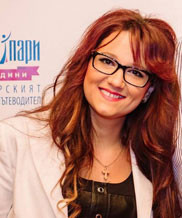Thriftiness if a distinguishing feature of the Bulgarians, various researches, including the latest survey which studies the reasons why Bulgarians save for rainy days show. Financial expert Desislava Nikolova who is part of My Money financial portal, which conducted the survey explained:
 The main conclusion of the research is that the Bulgarians are saving, so they can have more money after they retire. The people open a bank deposit, in order to make up for their small income when they go in pension. The so-called “other purposes” come second. These are savings used by the people to do home maintenance and refurbishment or start a new business. Thirdly, people save in order to pay their first installment during the purchase of new home. According to another conclusion of our research, people keep bank deposits, because of their liquidity and flexibility, i.e. they want their saving to be always at their disposal and always be able to draw cash or put money into their account. Over 70% of the surveyed Bulgarians said they prefer to save in Bulgarian Levs. The savings in Euro are slightly less than a quarter of all savings.
The main conclusion of the research is that the Bulgarians are saving, so they can have more money after they retire. The people open a bank deposit, in order to make up for their small income when they go in pension. The so-called “other purposes” come second. These are savings used by the people to do home maintenance and refurbishment or start a new business. Thirdly, people save in order to pay their first installment during the purchase of new home. According to another conclusion of our research, people keep bank deposits, because of their liquidity and flexibility, i.e. they want their saving to be always at their disposal and always be able to draw cash or put money into their account. Over 70% of the surveyed Bulgarians said they prefer to save in Bulgarian Levs. The savings in Euro are slightly less than a quarter of all savings.
In order to achieve their saving goals depositors choose mainly twelve month deposits. At the end of April 2019 the bank deposits of the Bulgarian households and non-profit enterprises amount to nearly EUR 27 billion, or 45.6% of the Bulgarian gross domestic product. They saw a 9% increase as compared to the same month last year. Meanwhile, the number and the amount of the bank deposits under EUR 511 has decreased, while the number of bank deposits in the EUR 10,225 - EUR 102,258 segment has seen a double digit growth (between 12% and 16%). Highest increase was registered in the number of bank deposits in the segment above EUR 102,258- over 20%.
The bank deposits are very popular, because they are secure. All bank deposits amounting to EUR 1002,213 or under are guaranteed by the state. But is this the main reason for the bank deposits to remain the most-preferred saving tool. In Desislava Nikolova’s words, the Bulgarian citizens need to improve their financial literacy:
Consumers show lower confidence in alternative investments. 10% of the people who took part in our survey said they chose a deposit, because they did not know much about other types of savings and investments. The lack of financial literacy and the lack of confidence in alternative forms of investments are the two main factors that cause excessive concentration of savings in banks. The lack of confidence comes from the supervisory institutions, other researches show. For instance investment intermediaries help people invest on the stock exchange, because the individuals do not have the right to invest on the stock exchange alone. There are many fake investments intermediaries who call people on the phone and promise them high yield-for instance 10% a month and they take their money. Thus, people lose all their savings. In this case, we are again talking about the lack of financial literacy and the inability to distinguish a fake investment intermediary from a licensed investments intermediary. Currently, the Bulgarian Stock Exchange is holding a campaign on this issue named “How to distinguish a fake investments intermediary”.
The flexibility of the financial product and the interest rate predetermine the choice of bank and the type of deposit, data of the research further show. The financial expert Desislava Nikolova told Radio Bulgaria details about the profile of the Bulgarian depositor.
The people with deposits in Bulgaria are mainly married men aged between 41 and 45 with a master’s degree. They earn between EUR 500 and 1,533 a month. The high interest rate is the main criterion during the selection of a deposit offer, although the competition between different bank in the interest rate segment is currently very weak- interests are low everywhere. This is surprising to me, because of the Corporate Commercial bank case (the bank went bankrupt in November 2014, but earlier it offered high interests on deposits). In the following years people started to ask questions not only about the interest rate, but also about the reputation and the stability of the bank. At some point the interests will start going up and I think people will ask similar questions more often.
Photo:expo.moitepari.bg
English version: Kostadin Atanasov
The Bulgarian Stock Exchange (BSE) will participate in the event "EU-Chambers Business Chill with the Bulgarian Stock Exchange," according to a post by the BSE on Facebook. The event is being organised by the Hungarian-Bulgarian Chamber of..
Under the name BGBizHub, Bulgarian entrepreneurs in Berlin have joined forces to promote and develop their businesses in Germany. "Like any other business, not only in Berlin or in Bulgaria, we currently face several problems -..
Bulgarians are consuming less bread, cheese and vegetables, but more fruit, according to the latest data from the National Statistical Institute on household consumption in the third quarter of 2025, compared to the same period last year...

+359 2 9336 661
